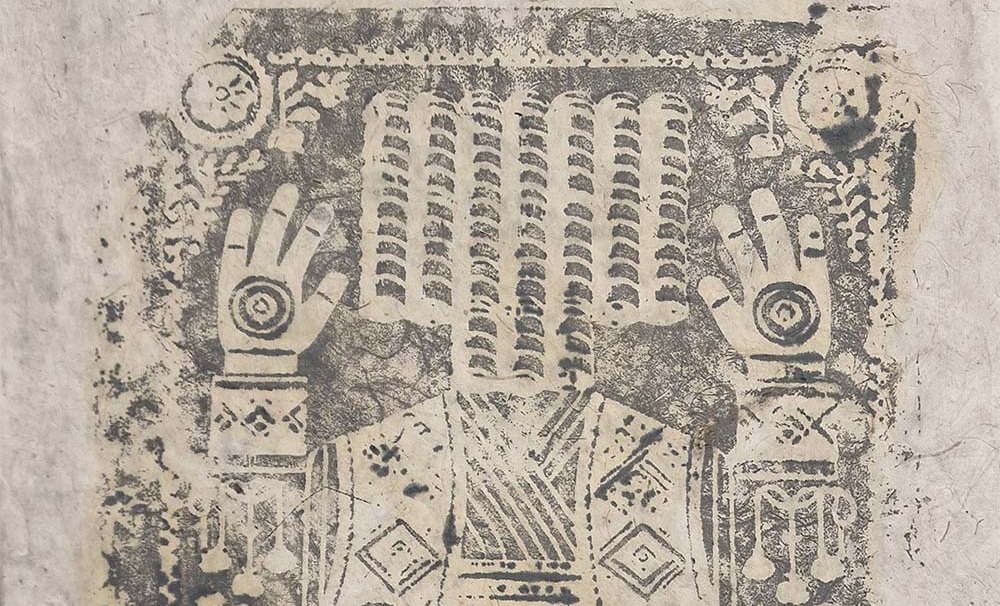
Zoumboulakis gallery presents the group show titled “muddy mood”, curated by Apostolis Artinos.
Participating Artists
Vanessa Anastasopoulou, Dionisis Christofilogiannis Christos Delidimos, Dionisis Kavallieratos, Konstantinos Ladianos, Natalia Manta, Maro Michalakakos, Dimitris Neveskiotis, Aliki Palaska, Vasilis Papageorgiou, Nikos Tranos, Giorgos Tserionis, Vasilis Zografos.
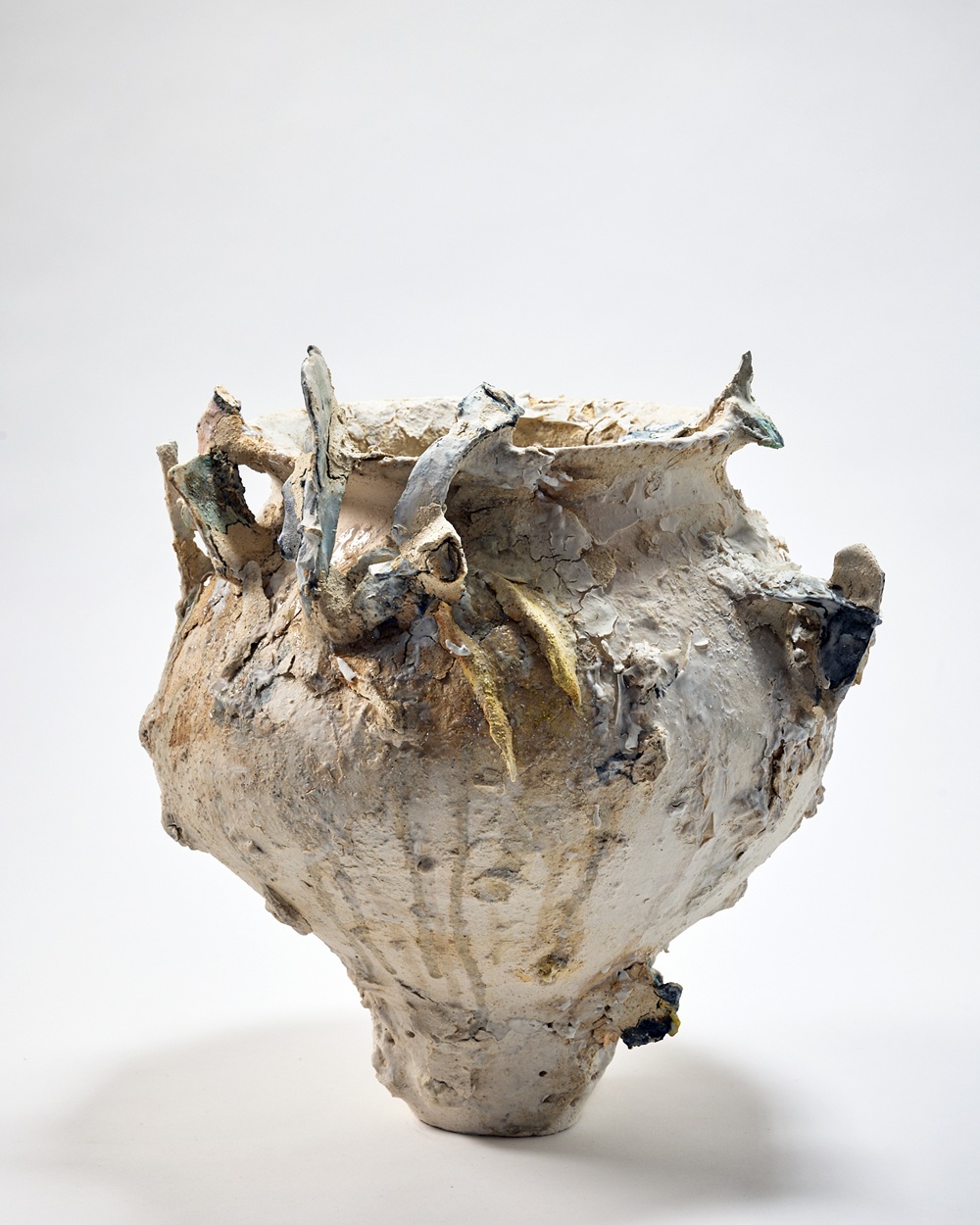
Vanessa Anastasopoulou
Artinos writes in his text: “The art of ceramics could be characterised by what Vilém Flusser has so aptly described as “the voracity of the hands”. For the gesture that stimulates the clay on the potter’s wheel or bench is what exposes the material to the setting of the artist’s images. A material which, like any other, resists and succumbs, and the more it abandons itself to this twofold movement the more it results in formal outcomes that excite and subjugate it. The works are manmade, the works are moulded by a twin-natured platonic gesture which inscribes the object onto the immateriality of the concept, and vice-versa. Form is the hybrid derived from such a dialectic.
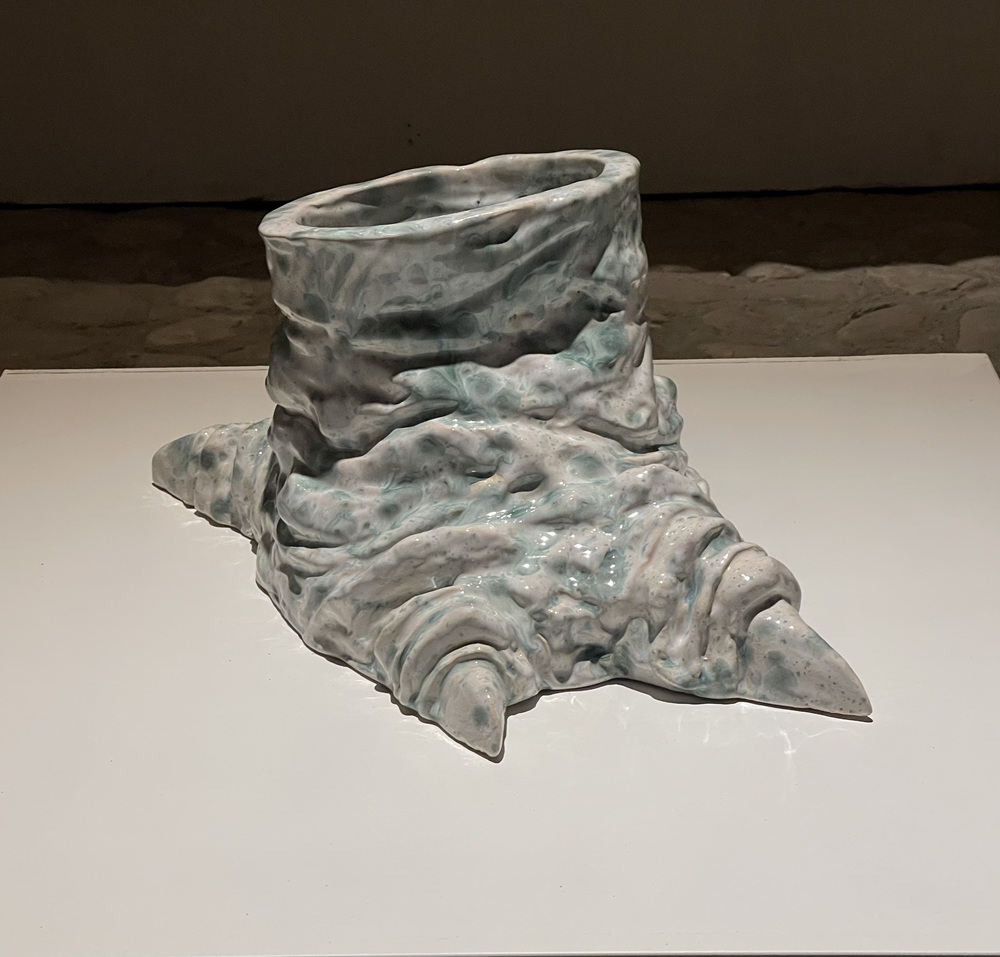
Maro Michalakakou
muddy mood; a raw and orgiastic mood starts the creation. The art of ceramics has something playful about it, with every move revealing forms. All we have to do is expand them, multiply them, continue to play. After all, this is what makes play fascinating—its endless manifestations. The act of shaping clay keeps exploring this potential, its creative scope. We are at the beginning of pleasure. The spontaneity of this practice, which is in no way unconnected from experience and knowhow, does not stop at the allure but manifests itself in its distinctions, as the ceramist recognises the visual forms and then subjects them to the span and the distinctions of his or her art. Herein lies the difference from children’s model-making: the artist gives in to the allure but remains constantly suspicious of it.
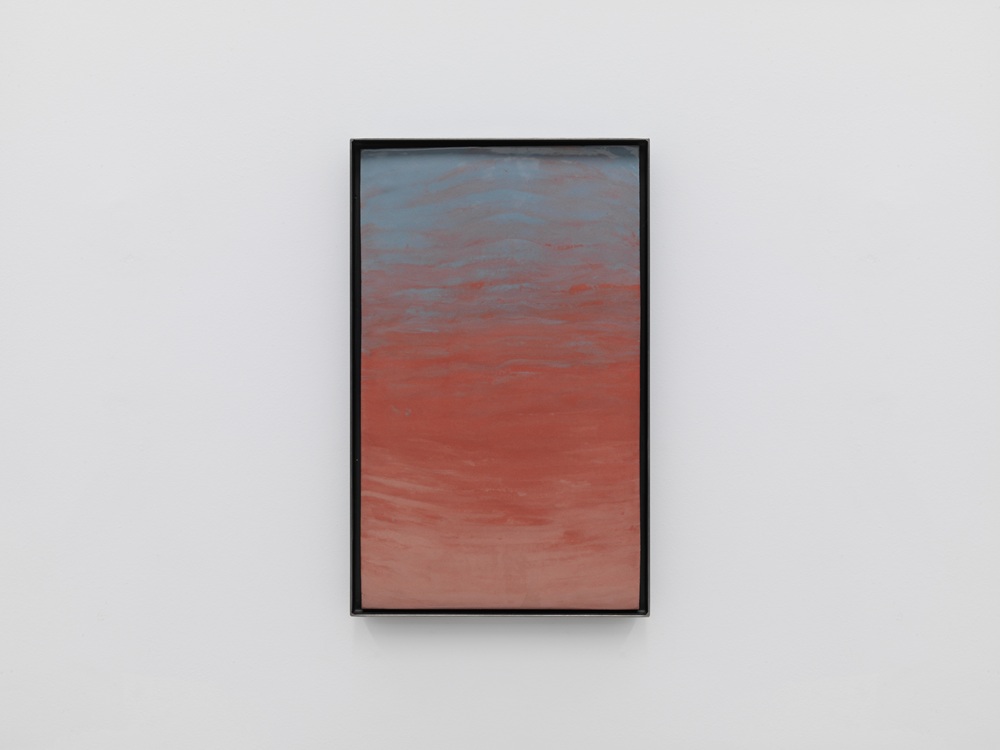
Vasilis Papageorgiou
Ceramics, even in its traditional guises when it served its utilitarian truth, always found ways to expose an uncanny trace—as in the zoomorphic and anthropomorphic jugs, for example. A traditional jug formed with such traits goes beyond its utilitarian nature to espouse another role, another creed within everyday experience. More than formal, this deviation served an additional meaning, another scene of the truth. The artwork, programmed in the horizon of its difference, spears also to be its most ideal fulfilment. In this way the uncanny, even in the most familiar aspects it can assume, becomes the verisimilitude of the work, its uninvited relief, even if it is barely traced on its surface.
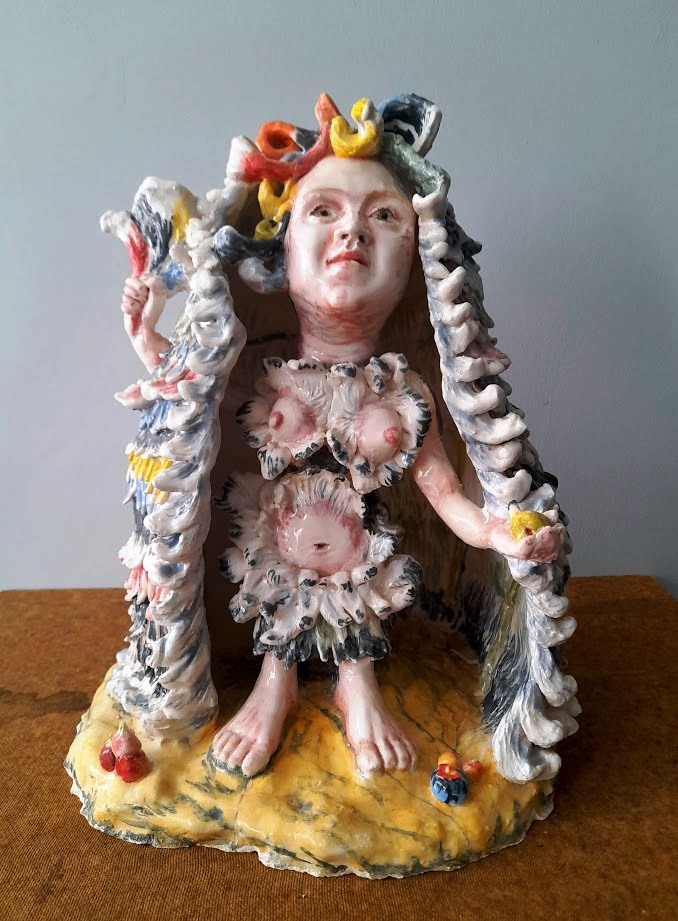
Konstantinos Ladianos
The painted and ceramic works by thirteen artists in the exhibition, muddy mood demonstrate the span of their differences. The delicate ceramic elements that rest upon the vases of Vanessa Anastasopoulou allude to fragility itself as it settles like ash on the glories of life. The mystical sculpture of Natalia Manta comes from a symbolic universe which is totally hers. On an oversized jug and a hand whose dimensions exceed the actual human scale, Christos Delidimos incorporates reliefs of a distinct ambiguity which point to ritualistic objects from long-forgotten pagan cults.
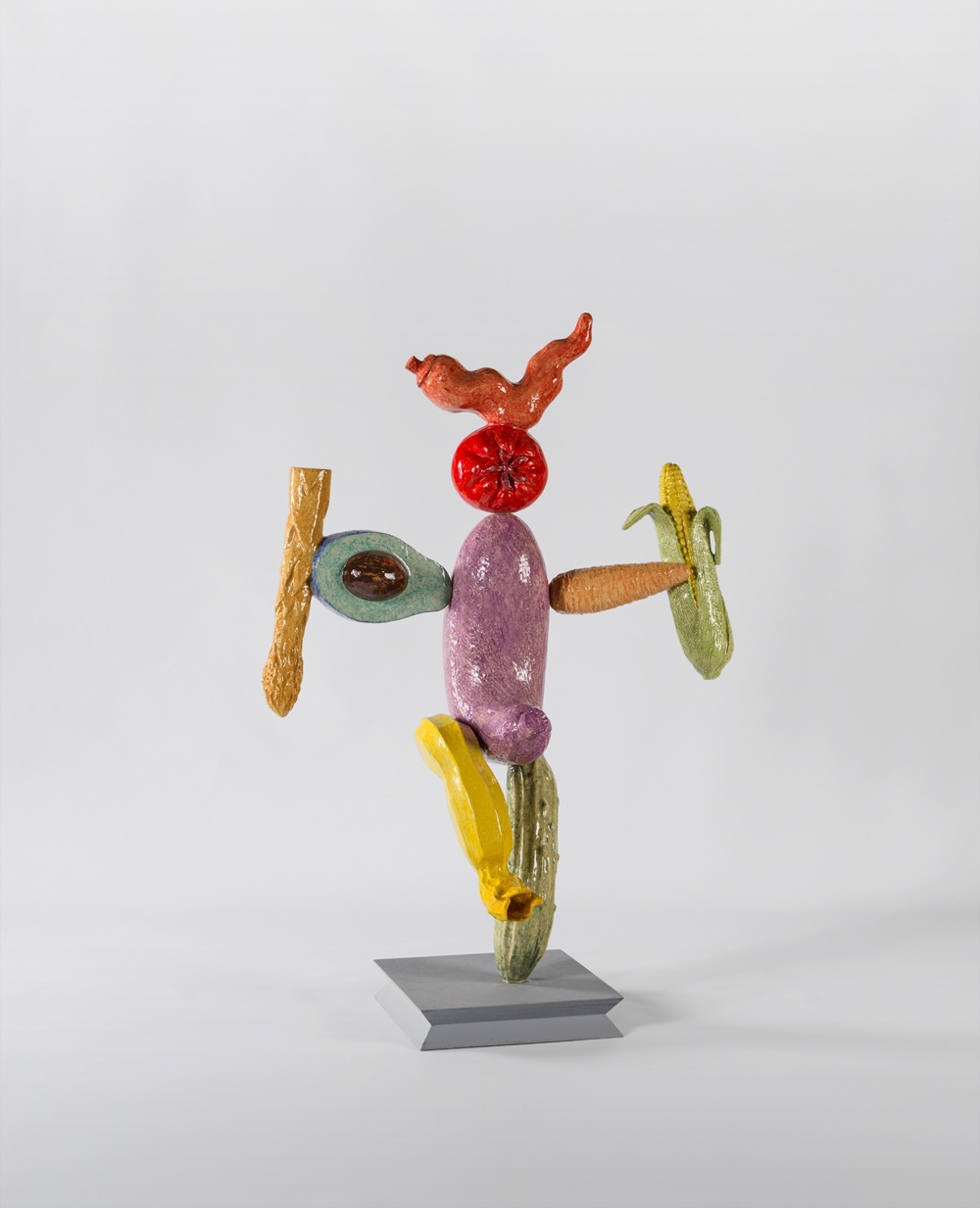
Dionysis Kavallieratos
The legs of birds of prey can be recognised in the ceramic creations of Maro Michalakakos; one of her works, Lovers, is a comment on desire and the im-possibility of the relationship. The drawings of Dimitris Neveskiotis are transferred from the computer screen onto the ceramic surface of his vases to attest to a new resilience, that of the digital script which reigns supreme. The vases of Giorgos Tserionis, with their fluid forms, defined by elements beyond their identity; the fragmental compositions of Aliki Palaska, with their unorthodox joinings and their twisted representations; and the representations of Western ceramic decorations on the translucent veils in the painting of Vasilis Zografos.
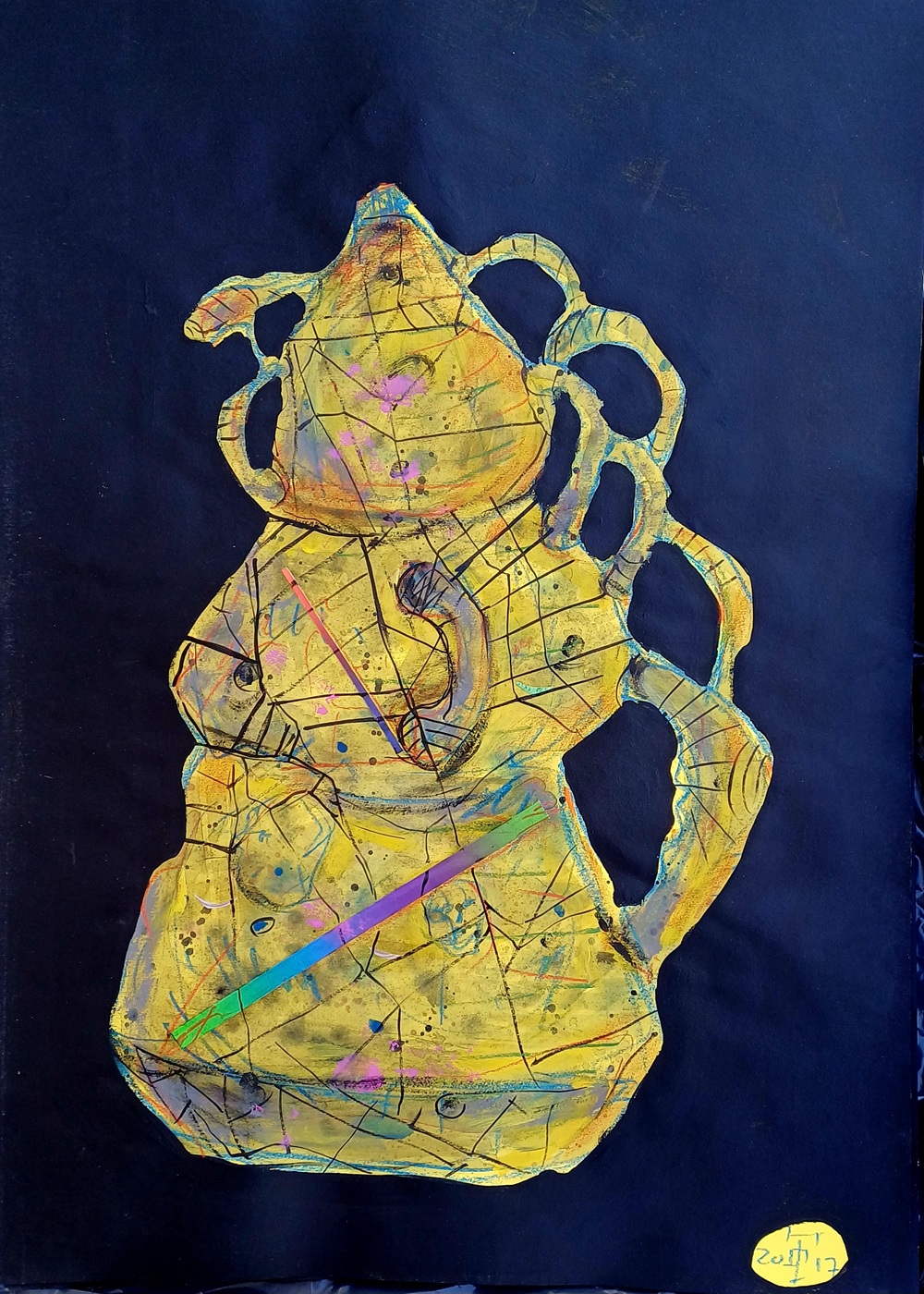
Giorgos Tserionis
In a humorous and critical mood, the ceramic sculptures of Dionisis Kavallieratos illustrate a series of outcast—yet also emblematic, in a way—figures of our contemporary world. The forms of the ceramic sculptures of Konstantinos Ladianos seem to have come out of his paintings to take up a new narrative challenge as they become three-dimensional. The ceramic paintings of Vasilis Papageorgiou are steeped in painterly atmospheres, even if these atmospheres stem from the body of clay itself, in this case. The ceramic sculptures of Nikos Tranos, archetypal constructions that incrementally unfold towards the sky—or do they come from it? Also, the wall-mounted ceramic compositions of Dionisis Christofilogiannis come from the imagery of a tradition at once indeterminate and familiar. All of these mean something, and again all of these conceal something, this secret language of art”.
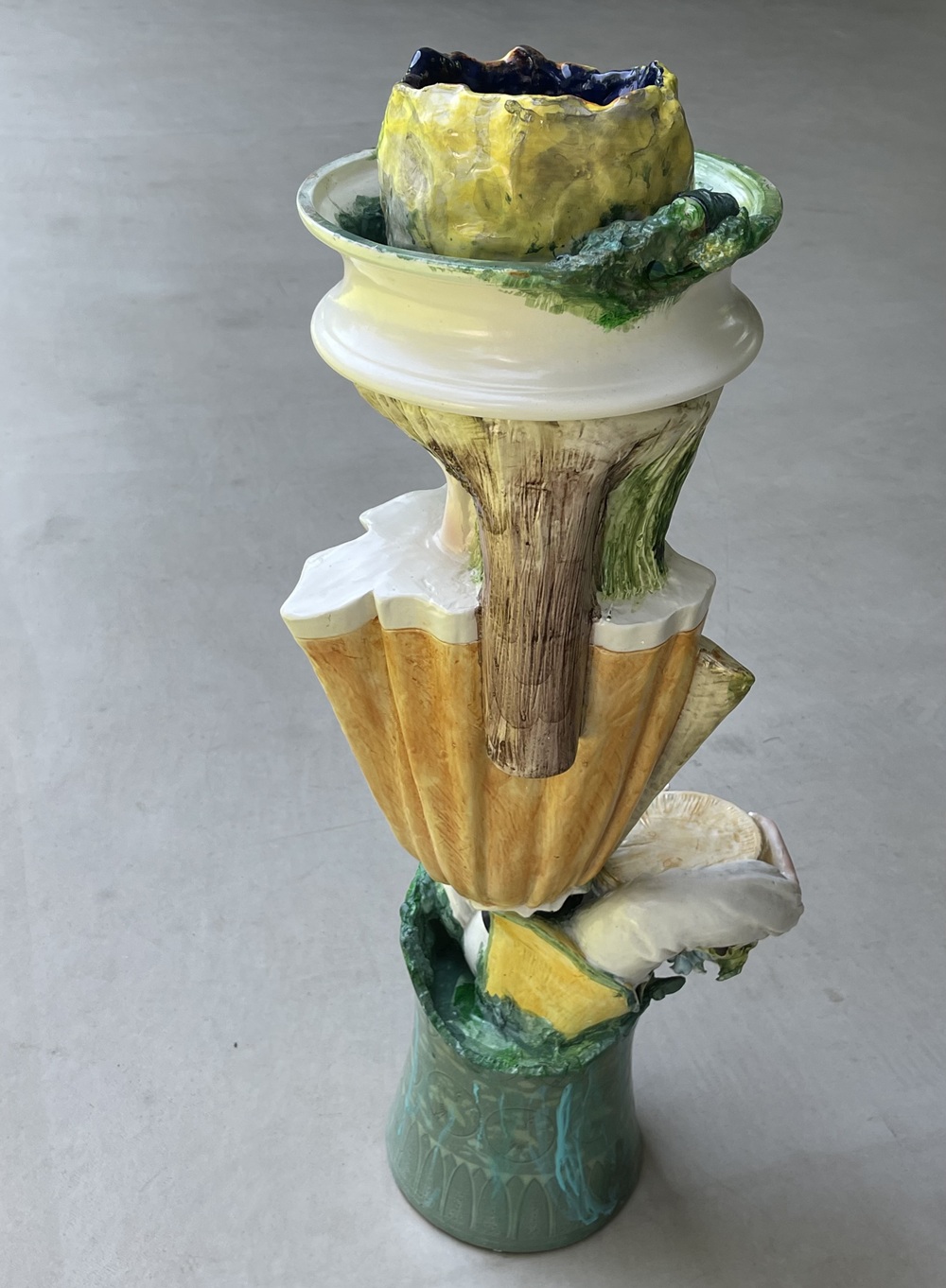
Aliki Palaska
The gallery would wish to thank: Bernier / Eliades Gallery, Can Christina Androulidaki Gallery, Callirrhoë Gallery, Kalfayan Galleries, Eleftheria Tseliou Gallery.
Duration: 5 – 28 June 2025
Zoumboulakis Gallery, Kolonaki Square 20
Opening Hours: Τue., Thur. & Fri.. 11.00 -20.00
Wedn.. & Sat. 11.00 –15.00
Sundays & Mondays closed


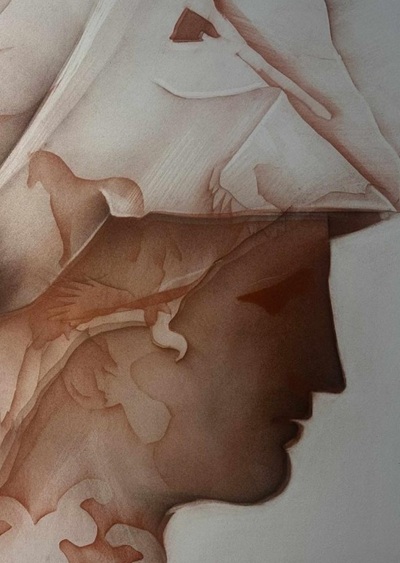
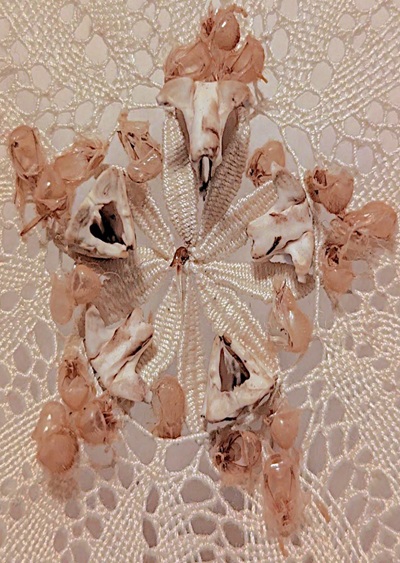
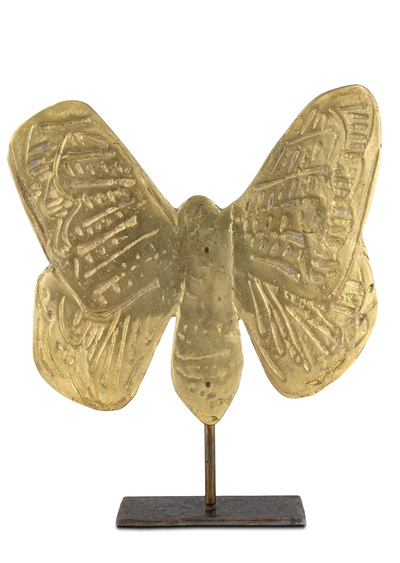


Leave A Comment